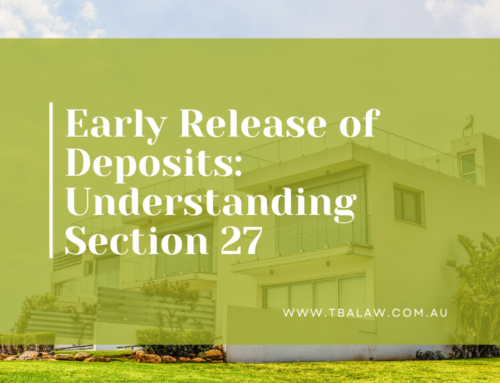What is Title Insurance?
Title insurance is a relatively new concept, and something that I only came across in the last 4 years. I have adopted it into my practice in the last two years, and offer it to clients as an extra protection. It also offers me some cover, because if a client takes title insurance then they are more likely to fix the problem under title insurance than to claim against my professional indemnity insurance (even if searches were done).
So what is it?
Title insurance is a policy you pay once, when you buy a property. The insurance policy lasts for the life of your ownership of the property, and covers you for a number of risks that are very difficult to check prior to you owning it. Existing home owners can buy it as well, but you are not covered for known risks.
 You are covered for the market value of the property, allowing for a 200% increase during the life of your ownership. There is also no excess payable on a claim.
You are covered for the market value of the property, allowing for a 200% increase during the life of your ownership. There is also no excess payable on a claim.
So what risks are covered by this title insurance?
- Illegal structures: a vendor has a responsibility to provide details of any building permits on the property, and details of owner-builder works. But if building works are illegal, then there is no building permit, and no way of finding out unless it is obvious to a purchaser inspecting the property. The risk is that the Council will issue a new owner with a compliance notice, when it wasn’t even them that built the illegal structure. Title insurance will cover the cost to make the building compliant, or to rebuild if this is required. This also covers swimming pools.
- Non-compliance with covenants or restrictions on land: similar to building regulations, there are often planning regulations of specific restrictive covenants on the land. It is not standard to check all of these before buying a property, and is sometimes only obvious to a purchaser inspecting a property. The risk again is non-compliance from Council for a planning breach, or action taken against a new owner by the person benefitting from the restrictive covenant. Title insurance covers all these costs to make the property compliant, as with building issues.
- Unpaid outgoings on the property: Most of these should be obvious during the conveyancing process with the standard searches done. However, there might be some unknown outgoings that also wasn’t disclosed by the vendor prior to settlement. It then crops up after settlement, and the new owner needs to pay. Title insurance will pay this for you.
- Fraud, forgery, impersonation or duress: If there is some legal action or question about the validity of the conveyancing transaction due to something unknown by a purchaser, then Title insurance will cover all the costs of litigation, and will try to rectify the situation for you.
- Unregistered easements, or unregistered people claiming an interest in the property: Similar to the former, Title insurance will cover costs of litigation to rectify anything like this that might arise.
- Boundary issues: Although most solicitors advise their clients to check the boundaries and have a survey done it that have any doubt, this usually doesn’t occur and boundary issues only ever arise later down the track when someone wants to develop the property. If there are any boundary issues (fences not on the boundary, or buildings built over boundaries) then Title insurance will cover the cost to rectify these situations.
So there are many benefits to having Title insurance. There are a few providers on the market, and premiums are very low for the risks that they cover. I strongly suggest to my clients that they buy the Title insurance, but it’s always a personally choice.





Leave A Comment